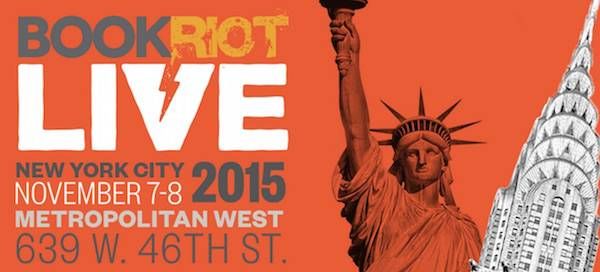
Confessions of a Once-Tyrannical English Teacher
I was a tyrant, and lo! my classroom was my kingdom. The past tense is such a relief.
For me and for my students.
I did it the Other Way. The Way that teachers do because That’s The Way We’ve Always Done It (alternately known as I Did It That Way, So Why Can’t You?). I’m talking about assigned reading, of course.
I lived by the wisdom of Flannery O’ Connor, who once quipped that it was regrettable if students didn’t find the books teachers assigned enjoyable, but that it was teachers’ job to cultivate, rather than merely satisfy, their students’ taste. I admit that there’s still something I love about the line. The confidence of it. The power. I don’t know exactly what changed.
Maybe it was trying to tie myself into knots to close off all the potential avenues students could travel to circumvent the actual reading of an assigned book. The internet has opened most of them. A heady student with a smart phone and a Goodreads account can fake their way through quite a lot, as it turns out, even if it actually requires as much work to do so as reading the book in the first place would have.
Maybe it was dragging half of every class kicking and screaming through monochromatic discussions led by the few ambitious students who would’ve read the assigned book had it been the complete In Search of Lost Time.
Maybe it was boredom. I love 1984. I love The Great Gatsby. And Huckleberry Finn and The Handmaid’s Tale and The Picture of Dorian Gray. But the same assignments with the same books wear on a teacher, not to mention the students.
Or maybe it’s because I’m sick of reading articles telling me that doom is nigh, that young people don’t read, and that the trend isn’t likely to change.
Whatever the reason, I switched it up this year, hoping that my students might take greater ownership over what they read if I made some changes to the standard one-size-fits-all approach stuck to religiously by every English class I ever took.
First, although all the books listed above (sans In Search of Lost Time) are still options, I’ve given them more choice. They can select any one of nearly thirty books in all. No, I haven’t thrown all notions of literary merit out the window. Every book on the list is written by an author celebrated in one circle or another. I stopped at thirty only because I wanted to have read as many of the books as possible so that I could answer students’ questions and simply have conversations about what they noticed as they read.
Second, I’ve diversified. I’ve made it a real point to diversify my personal shelves, and I see no reason not to encourage my students to do the same. More female authors, more authors of color, more contemporary works to go along with the classics. I’ve thrown in a couple of graphic novels as well, just to bring some diversity of form. You should see the looks on their faces when they hear me say that graphic novels are “real” novels.
My students are a couple of weeks into their novels now. Some of them have even finished their books already. Books by Morrison and McCarthy, Steinbeck and Twain, Orwell and Atwood, Hurston and Vonnegut, Edwidge Danticat and David Mitchell. 115 students reading books. I know it’s happening because I see it. I’m giving them time every day to read in class, and, though I guess it’s possible that they’re really just staring at the space between lines and turning pages every couple of minutes for show, I really think they’re taking me up on the offer.
That ownership I talked about? It’s making a difference. I encouraged my students to leaf through copies of the books on the list before they read, to consult reviews and Goodreads pages, to read the first fifteen pages of this book and that, just to see how they landed. In other words, I treated them the way readers want to be treated in an age when they have access to everything, when something more engaging is a click or a swipe away.
The result? I’ll have to wait a week or two – when they turn in their final projects based on their selected novel – to know for sure about the academic side of things, but I’m betting on their success. Because aren’t we more engaged as readers when we have some autonomy? When we can try things out and settle on something that strikes us? Don’t we read more deeply? Aren’t we more likely to have something meaningful to say about books we feel a connection to (even if we don’t like the book in question?).
(So far, only a handful of students have changed books after their initial choices, but just as many have finished their first choice and picked up another one just because.)
I’d love it, of course, if every student adored the book they chose and tearfully thanked me for rekindling a love of reading that they’ll never let be extinguished for as long as they live, but I’ll settle for just getting through this one book and having something thoughtful to say about it. If I can get that, I figure there’s at least a chance that, somewhere down the road, they’ll be able to think about reading as a thing that was good or cool or enjoyable or at least worth giving another shot.
If I can get that, then toppling the tyrant within will have been more than worth it.
____________________
Book Riot Live is coming! Join us for a two-day event full of books, authors, and an all around good time. It’s the convention for book lovers that we’ve always wanted to attend. So we are doing it ourselves.






